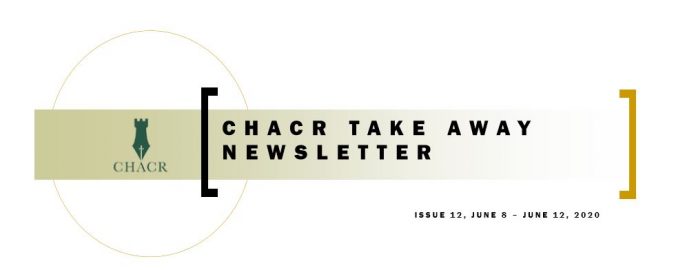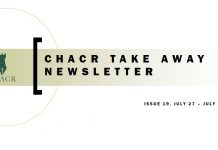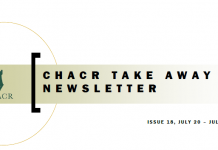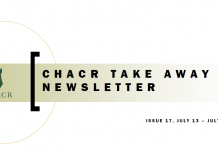This is the twelfth issue of the weekly CHACR Take Away newsletter. In these newsletters, you will find links to the latest products by the CHACR, but also links to key reports and studies by external experts and institutions which we think you should pay attention to.
A Word from the Director
We have been doing some work over the last couple of weeks on social cohesion. What we have so far unearthed has suggested to us that this is a topic that we may wish to investigate in rather more detail. It may seem like a statement of the blindingly obvious to a military readership, but when the going gets tough not only do the tough need to get going, but everyone else also needs to work together and look out for each other ever more closely. Teamwork, whether on a small scale or a grand scale, tends to make dealing with adversity rather easier than it may otherwise be. Of course, in every successful team there is always a role for constructive debate and questioning. Good ideas, after all, do not have a rank. But once the discussion is over, decisions are made and direction is issued the line between constructive criticism and unhelpful critique moves. It becomes hard to spot, in a vibrant society, where healthy debate slips into dissent, division, cynicism and even deliberate disobedience. A glance at history has shown us that many of those societies that, once successful, begin to enter unhealthy decline tend also (and this is, admittedly, a sweeping generalisation) to have switched their national or social outlooks from one of positive national self-confidence to one of cynical national self-doubt and a tendency to turn in on themselves. Just a simple glance at the Thesaurus suggests that cohesion (unity, consistency, interrelation, structure) is more helpful in difficult times than its antonym incoherence (unintelligibility, disjointedness, confusion, disorganisation). As I say, all statements of the obvious, perhaps, but as we watch events unfold, nationally and internationally, digging rather deeper into this subject may offer some very useful insights.
Maj Gen (Ret) Dr Andrew Sharpe





